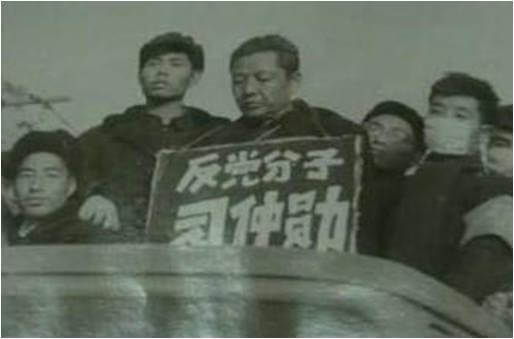
ĭenunciation rallies emerged in China as a tactic to secure the allegiance of the Chinese people during the land reform ( 土地改革, tǔdì gǎigé) campaign. However, these sessions became commonplace at Chinese Communist Party (CCP) meetings during the 1930s due to public popularity.

Chinese communists resisted this at first, as struggle sessions conflicted with the Chinese concept of ' saving face'. Origins and "speak bitterness" sessions ĭenunciation rallies developed from similar ideas of criticism and self-criticism in the Soviet Union from the 1920s. The term refers to class struggle the session is held, ostensibly, to benefit the target, by eliminating all traces of counterrevolutionary, reactionary thinking.
Public humiliation cultural revolution struggle session full#
ĭenunciation rally of Sampho Tsewang Rigzin.Īccording to Lin Yutang, the expression comes from pīpàn ( 批判, 'to criticize and judge') and dòuzhēng ( 鬥爭, 'to fight and contest'), so the whole expression conveys the message of "inciting the spirit of judgment and fighting." Instead of saying the full phrase pīpàn dòuzhēng, it was shortened to pīdòu ( 批鬥). The denunciation of prominent class enemies was often conducted in public squares, and marked by large crowds who surrounded the kneeling victim, raised fists, with outbursts of hatred and accusations. These rallies were most popular in the mass campaigns immediately before and after the establishment of the People's Republic of China and during the Cultural Revolution.

The aim was to instill a crusading spirit among the crowd to promote the Maoist thought reform. Staging, scripts and agitators were prearranged by the Maoists to incite crowd support. Usually conducted at the workplace, classrooms and auditoriums, "students were pitted against their teachers, friends and spouses were pressured to betray one another, children were manipulated into exposing their parents". The 10th Panchen Lama during a denunciation rallyĭenunciation rallies, also called struggle sessions, were violent public spectacles in Maoist China, where people accused of being " class enemies" of the Maoists were publicly humiliated, accused, beaten and tortured by people they were close to.


 0 kommentar(er)
0 kommentar(er)
